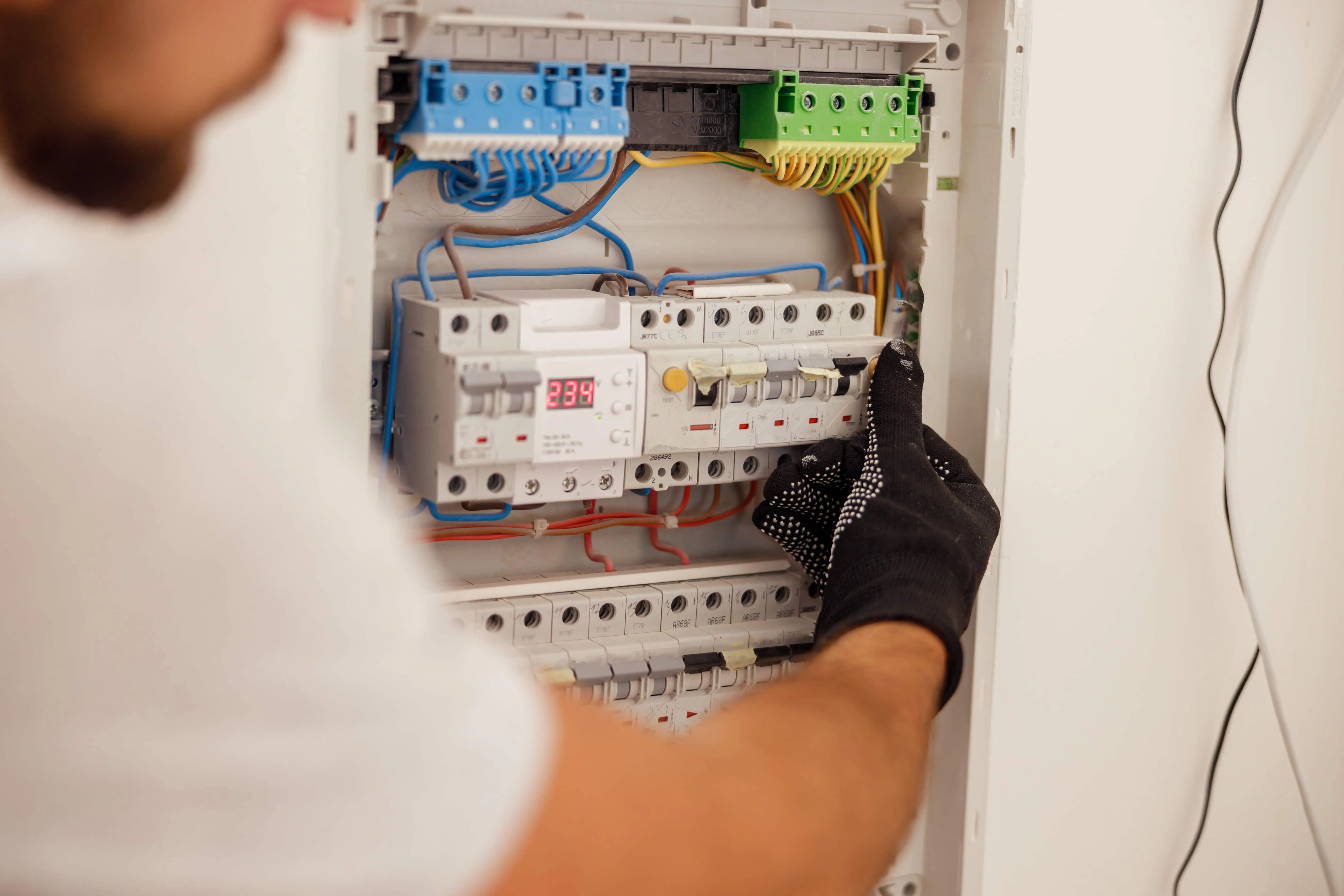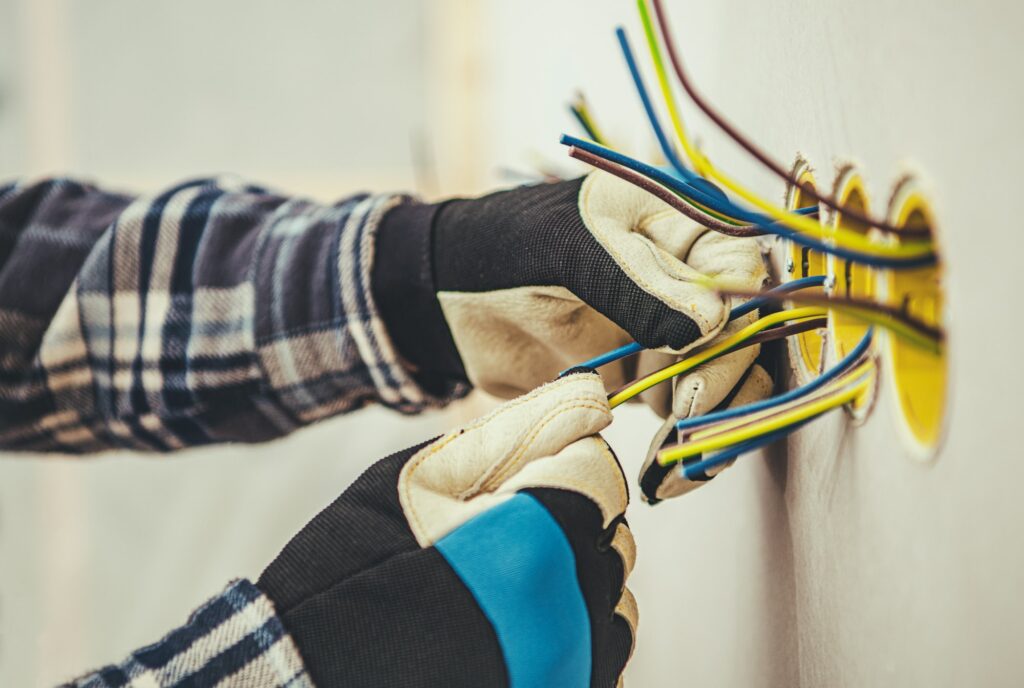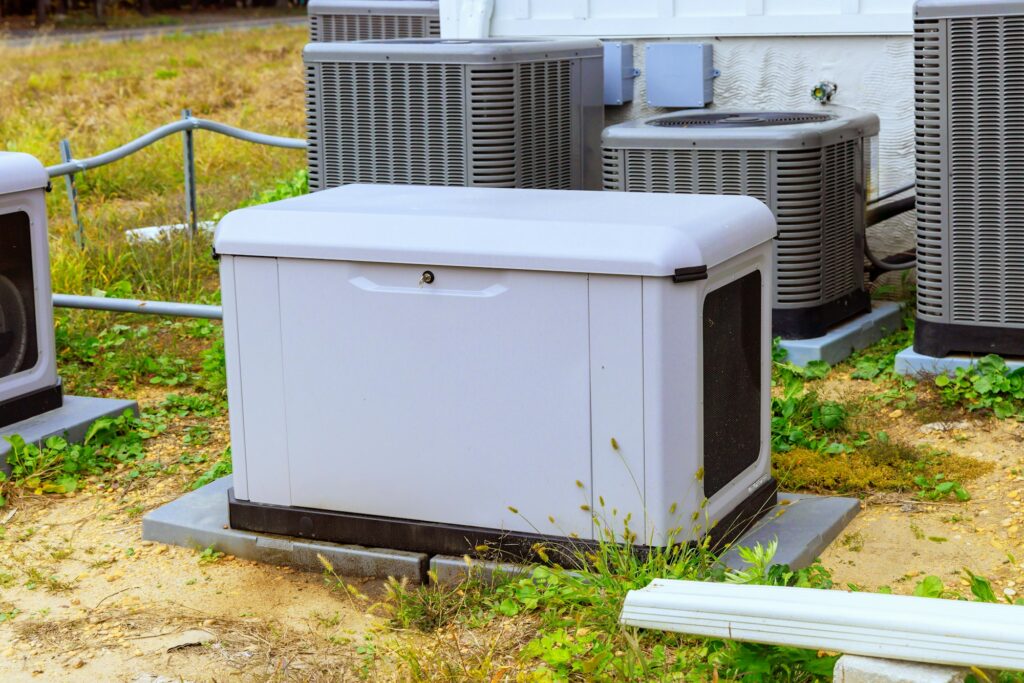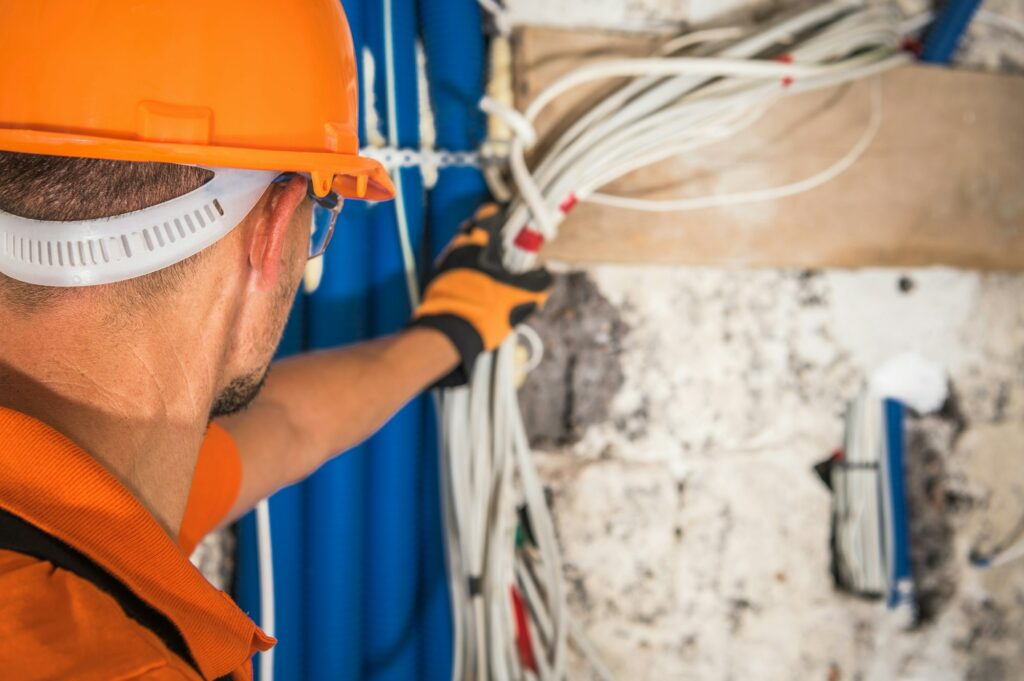Importance of Circuit Breaker
Are you looking for professional circuit breaker installation services in Northern Nevada? Look no further than Ohms Electric, your trusted electrical partner. With years of experience and a team of skilled technicians, we provide top-notch circuit breaker installation solutions to ensure the safety and efficiency of your electrical system. In this article, we’ll explore the importance of circuit breakers, the signs you may need an installation, and why Ohms Electric is your go-to choice for this crucial service.
Signs You Need Circuit Breaker Installation
Frequent Tripping: If your circuit breakers trip frequently, it’s a sign that they may be outdated or unable to handle your electrical load. This could lead to inconvenience and potential hazards.
Older Electrical Panel: If your electrical panel is several decades old, it may not meet modern safety standards. Upgrading to a new panel with updated circuit breakers is essential for safety.
Addition of New Appliances: When adding new appliances or expanding your electrical system, it’s crucial to ensure your circuit breakers can handle the increased load. Inadequate capacity can lead to electrical issues.
Here are some key advantages of installing a circuit breaker
Electrical Safety: Circuit breakers are designed to protect your home or business from electrical overloads, short circuits, and faults. When they detect an abnormal surge of electrical current, they automatically trip, cutting off the power supply to the affected circuit. This prevents overheating, fires, and electrical hazards.
Fire Prevention: One of the primary functions of circuit breakers is to prevent electrical fires. By interrupting the flow of electricity when a fault occurs, circuit breakers significantly reduce the risk of electrical fires that can result from overloaded circuits or faulty wiring.
Protection of Electrical Devices: Circuit breakers safeguard your expensive electrical appliances and devices by preventing excessive current from reaching them. This protection extends the lifespan of your electronics and reduces the likelihood of costly repairs or replacements.
Convenience: Circuit breakers are easy to reset after they trip, unlike traditional fuses that need to be replaced. This convenience means you can quickly restore power to the affected circuit without the need for extra materials or professional assistance.
Customizable Protection: Circuit breakers come in various sizes and ratings, allowing you to tailor the protection to your specific needs. You can choose breakers with different amperage ratings to match the electrical load of individual circuits, ensuring optimal safety and efficiency.
Reduced Downtime: When a circuit breaker trips, only the affected circuit loses power, while the rest of your electrical system remains operational. This minimizes downtime and inconvenience compared to a blown fuse, which may affect multiple circuits.
Energy Efficiency: Circuit breakers contribute to energy efficiency by preventing overloads. They ensure that your electrical system operates within its designed capacity, reducing wasted energy and potentially lowering your energy bills.
Compliance with Safety Standards: Many building codes and safety regulations mandate the use of circuit breakers in modern electrical systems. Installing circuit breakers ensures that your electrical setup complies with these standards, which is essential for safety and legal compliance.
Easy Troubleshooting: When a circuit breaker trips, it provides a clear indication of the problem area. This simplifies troubleshooting, making it easier to identify and address electrical issues promptly.
Peace of Mind: Knowing that your electrical system is equipped with circuit breakers provides peace of mind. You can feel confident that your home or business is protected from electrical hazards, even when you’re not actively monitoring the system.
Here are some of the most common types of circuit breakers
- Miniature Circuit Breaker (MCB)
- Residual Current Circuit Breaker (RCCB)
- Molded Case Circuit Breaker (MCCB)
- Miniature Circuit Breaker with Earth Leakage Protection (MCB-ELCB)
- Air Circuit Breaker (ACB)
- Oil Circuit Breaker (OCB):
- Vacuum Circuit Breaker (VCB)
- Sulfur Hexafluoride Circuit Breaker (SF6 CB)
- High-Voltage Circuit Breaker (HVCB)
- Electronic Trip Circuit Breaker (ETCB)
Your Next Step with Ohms Electric
Ready to enhance your home’s electrical safety and efficiency? Contact Ohms Electric today. Our experienced electricians can provide personalized advice tailored to your home’s unique needs and carry out any necessary installations or repairs.
When you choose Ohms Electric for Circuit Breaker Installation, you’re not just getting a service – you’re getting peace of mind, knowing that your home’s electrical systems are in the hands of qualified professionals.
Contact us today to schedule a service appointment or discuss your electrical needs. At Ohms Electric, we’re lighting the way to a safer, more energy-efficient future for homes across Northern Nevada.




